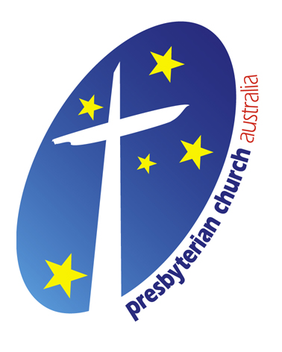Timeline

A number of Presbyterian and Reformed denominations exist in Australia.
| Name | Number of congregations | Bible translation | Singing | Origin | Notes |
|---|---|---|---|---|---|
| Evangelical Presbyterian Church | 3 | KJV only | Exclusive psalmody | 1961 | Formed in Tasmania by members who left other non-reformed denominations. Various Schisms. Denies free offer of the gospel. |
| Free Presbyterian Church (Ulster) | 4 | KJV only | 1970s | Independent churches approached and joined the Ulster FPC. | |
| Free Presbyterian Church of Scotland | 2 | KJV only | Exclusive psalmody | 1970s | Two churches created from Scottish preachers. |
| Presbyterian Church of Australia | 546 | 1901 | Formed in 1901 by a union of state Presbyterian churches. In 1977, two-thirds of the PCA amalgamated with other denominations to form the Uniting Church in Australia. | ||
| Presbyterian Church of Eastern Australia | 14 | Exclusive psalmody | 1843 | The PCEA formed as a result of the Disruption of 1843 in Scotland. | |
| Presbyterian Reformed Church | 3 + 4 others in South Pacific | 1967 | Originally PCA. Broke away over theological liberalism. | ||
| Reformed Presbyterian Church | 3 | Exclusive psalmody | 19th century | Formed by migrant Irish Covenanters. Part of the Reformed Presbyterian Global Alliance | |
| Southern Presbyterian Church | 2 | KJV only | Exclusive psalmody | 1986 | Originally EPC. |
| Westminster Presbyterian Church | 15 | 1970 | Began with support from the Reformed Presbyterian Church, Evangelical Synod. | ||
| Australian Free Church | 2 | KJV only | Exclusive psalmody | 1979 | Originally PCEA. Broke away over King James Bible. |
| Christian Reformed Churches | 60 | 1951 | Formed by Dutch migrants who were associated with the Reformed Churches in the Netherlands. | ||
| Free Reformed Churches | 19 | 1951 | Formed by Dutch migrants who were associated with the Reformed Churches in the Netherlands (Liberated). | ||
| Hungarian Reformed Church | 2 | After World War II | Formed by Hungarian migrants. | ||
| Reformation Presbyterian Church | 4 + 1 in USA | Masoretic Text and Textus Receptus | Exclusive Psalmody | 2010 |
Notes:


Presbyterianism is a Reformed (Calvinist) Protestant tradition named for its form of church government by representative assemblies of elders. Other Reformed churches are organised in a similar way, but the word Presbyterian, when capitalized, is applied to churches that trace their roots to the Church of Scotland or to English Dissenter groups that formed during the English Civil War.

The Free Church of Scotland is a Scottish denomination which was formed in 1843 by a large withdrawal from the established Church of Scotland in a schism known as the Disruption of 1843. In 1900, the vast majority of the Free Church of Scotland joined with the United Presbyterian Church of Scotland to form the United Free Church of Scotland. In 1904, the House of Lords judged that the constitutional minority that did not enter the 1900 union were entitled to the whole of the church's patrimony, the Free Church of Scotland acquiesced in the division of those assets, between itself and those who had entered the union, by a Royal Commission in 1905. Despite the late founding date, Free Church of Scotland leadership claims an unbroken succession of leaders going all the way back to the Apostles.

The Non-subscribing Presbyterian Church of Ireland is a non-creedal Christian denomination, which maintains a great emphasis on individual conscience in matters of Christian faith.
In Anglican Christianity, low church refers to those who give little emphasis to ritual. The term is most often used in a liturgical sense, denoting a Protestant emphasis, whereas "high church" denotes an emphasis on ritual, often Anglo-Catholic.

The Free Presbyterian Church of Scotland was formed in 1893. The Church identifies itself as the spiritual descendant of the Scottish Reformation. The Church web-site states that it is 'the constitutional heir of the historic Church of Scotland'. Its adherents are occasionally referred to as Seceders or the Wee Wee Frees. Although small, the church has congregations on five continents.

The Presbyterian Church of Eastern Australia (PCEA) is a small Presbyterian denomination which was formed in Sydney on 10 October 1846 by three ministers and a ruling elder. As of December 2012 it consists of 13 pastoral charges with a total of 17 regular preaching points, 12 serving ministers, 1 minister without charge, 6 retired ministers and a community of about 800.

The Presbyterian Reformed Church (PRC) is a North American Christian denomination which was founded in Ontario, Canada on November 17, 1965, when two existing congregations, with similar Scottish Presbyterian roots, came together under a Basis of Union drafted by Prof. John Murray of Westminster Theological Seminary, Philadelphia, PA.

The Presbyterian Church of Australia (PCA), founded in 1901, is the largest Presbyterian denomination in Australia. The larger Uniting Church in Australia incorporated about 70% of the PCA in 1977.
The Evangelical Presbyterian Church is a small Australian Reformed Christian denomination. In September 2010 it had five centres: Brisbane; Londonderry (Sydney); Cohuna, Victoria ; Launceston and Winnaleah (Tasmania) with until 2014 a small school at Herrick near Winnaleah.

The Free Presbyterian Church of Ulster is a Calvinist denomination founded by Ian Paisley in 1951. Doctrinally, the church describes itself as fundamentalist, evangelical, and separatist, and is part of the reformed fundamentalist movement. Most of its members live in Northern Ireland, where the church is headquartered, and in County Donegal. The church has additional congregations in the Republic of Ireland, Great Britain and Australia, and a sister denomination in North America, the Free Presbyterian Church of North America, which has congregations in Canada and the United States. It also has a sister denomination in Nepal which was formed from the Nepal mission to the Unreached in November 2013.

James Forbes was a Scottish-Australian Presbyterian minister and educator. He founded the Melbourne Academy, later Scotch College.
The Free Church of Scotland is an evangelical, Calvinist denomination in Scotland. It is the continuation of the original Free Church of Scotland that remained outside the union with the United Presbyterian Church of Scotland in 1900, and remains a distinct Presbyterian denomination in Scotland.
Continuing churches are Christian denominations that form when a church union between different denominations occurs, and members or congregations do not wish to join the new denomination, but instead choose to continue the heritage and identity of their old denomination. The phrase is sometimes used by denominations that separate from a parent body and wish to express their faithfulness to the denomination's heritage.
The Free Presbyterian Church of Victoria, also known as the Free Church of Australia Felix, was an Australian Presbyterian denomination founded in Melbourne, Victoria in 1846 as a result of the Disruption of 1843 in the Church of Scotland.

The Reformed Presbyterian Church of North America (RPCNA) is a Presbyterian church with congregations and missions throughout the United States, Canada, Japan, and Chile. Its beliefs—held in common with other members of the Reformed Presbyterian Global Alliance—place it in the conservative wing of the Reformed family of Protestant churches. Below the Bible—which is held as divinely inspired and without error—the church is committed to several "subordinate standards," together considered with its constitution: the Westminster Confession of Faith and Larger and Shorter Catechisms, along with its Testimony, Directory for Church Government, the Book of Discipline, and Directory for Worship.
Australian Free Church is a Presbyterian denomination in Australia.

Geneva Reformed Seminary is a small theological school in Greenville, South Carolina, accredited by the Association of Reformed Theological Seminaries and supported by the Free Presbyterian Church of North America. The seminary offers B.D. and M.Div. degrees. Initially called Whitefield College of the Bible after a companion school in Banbridge, Northern Ireland, the seminary was renamed in 2002 to avoid confusion in the United States where Bible schools and seminaries prepare students at different academic levels.

The Reformed Presbyterian Global Alliance is a communion of Presbyterians originating in Scotland in 1690 when its members refused to conform to the establishment of the Church of Scotland. The Reformed Presbyterian churches collectively have approximately 9,500 members worldwide in Northern Ireland, the Republic of Ireland, Scotland, France, the United States of America, Canada, Japan, South Sudan, and Australia.